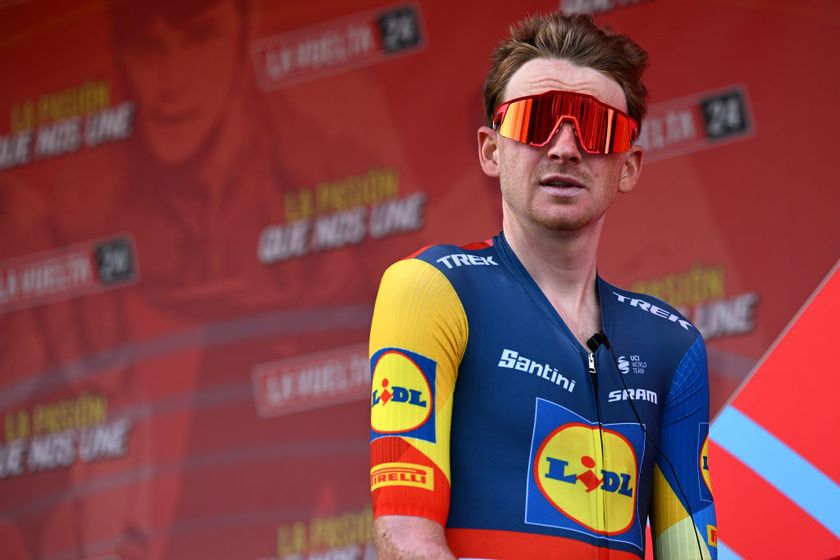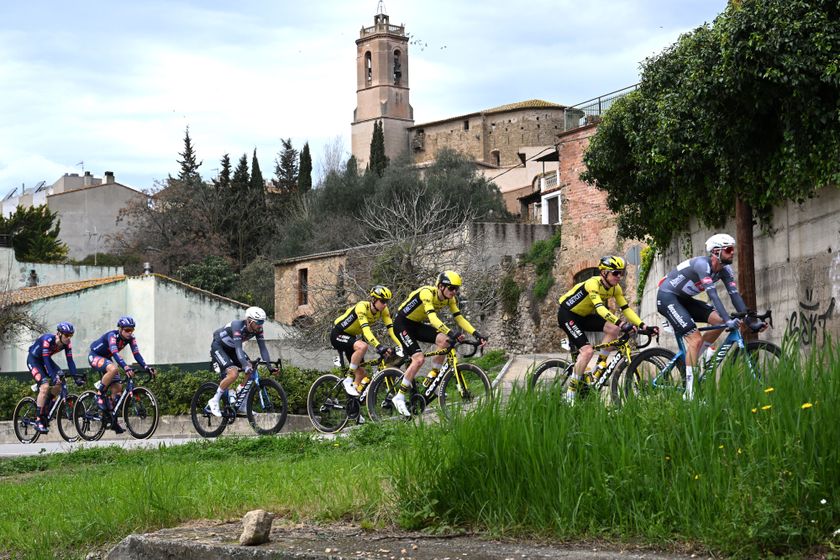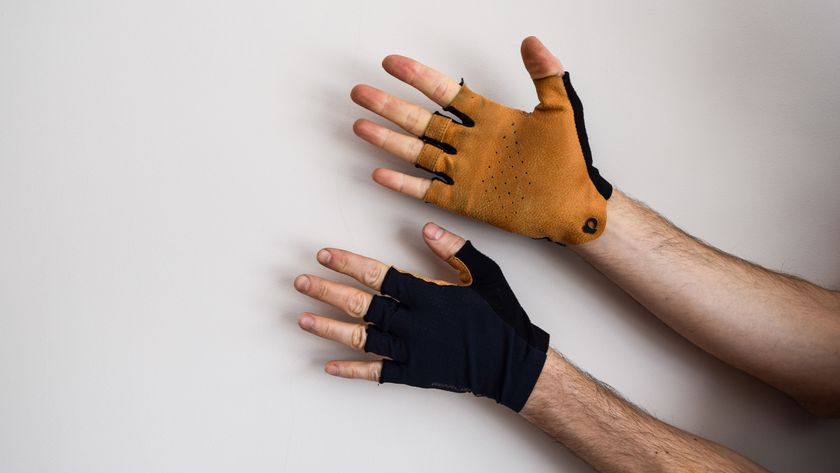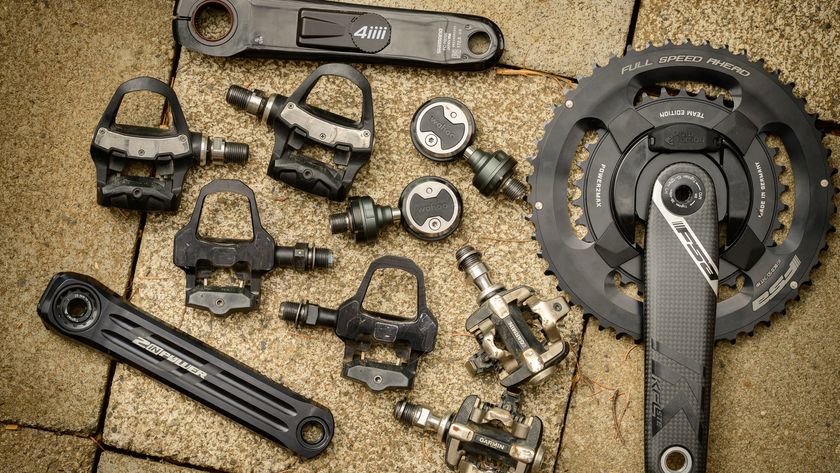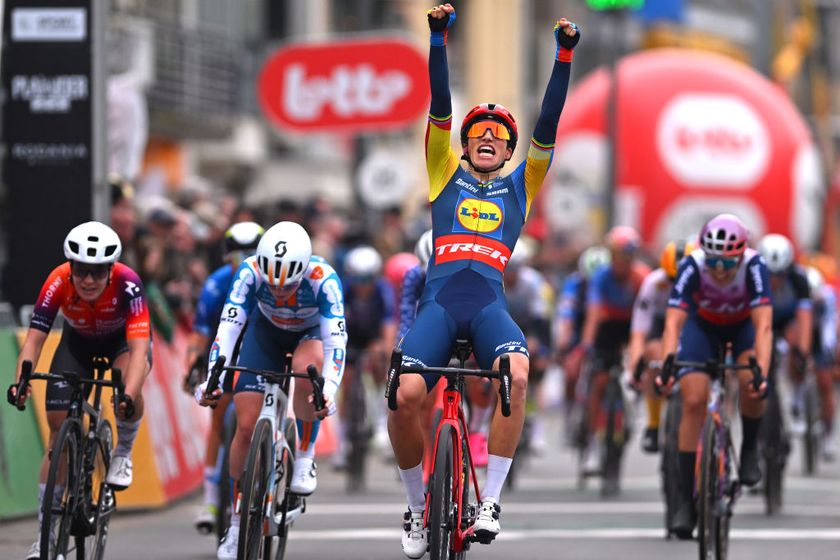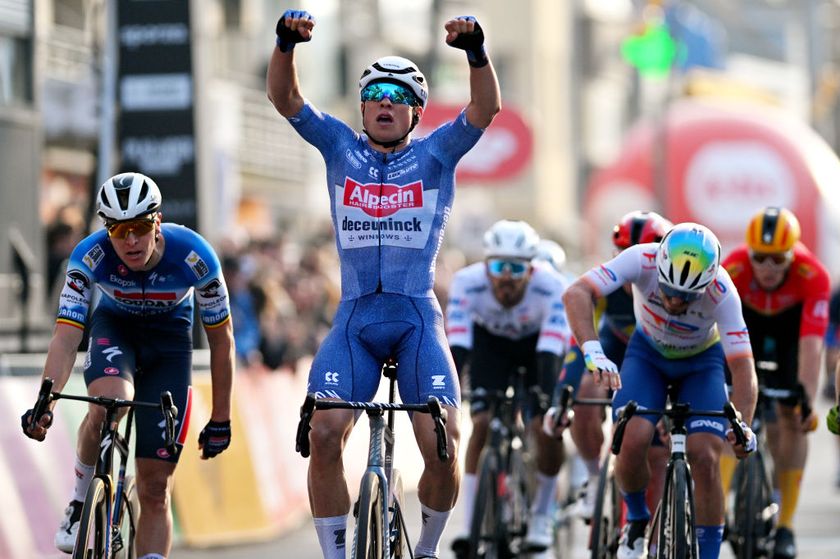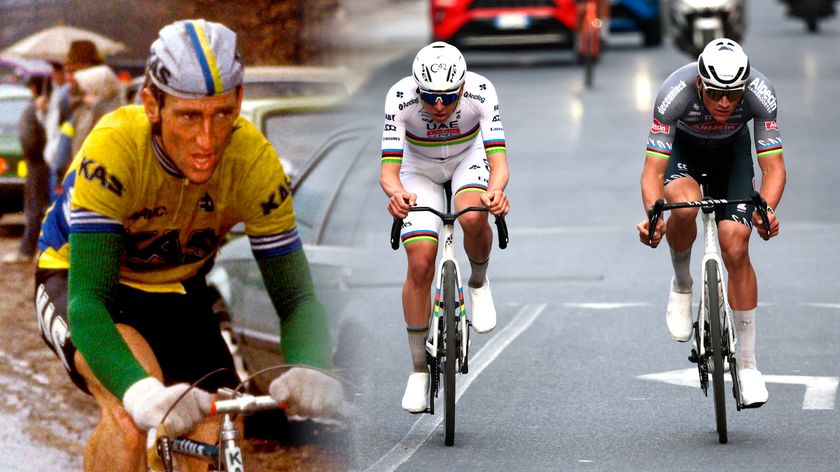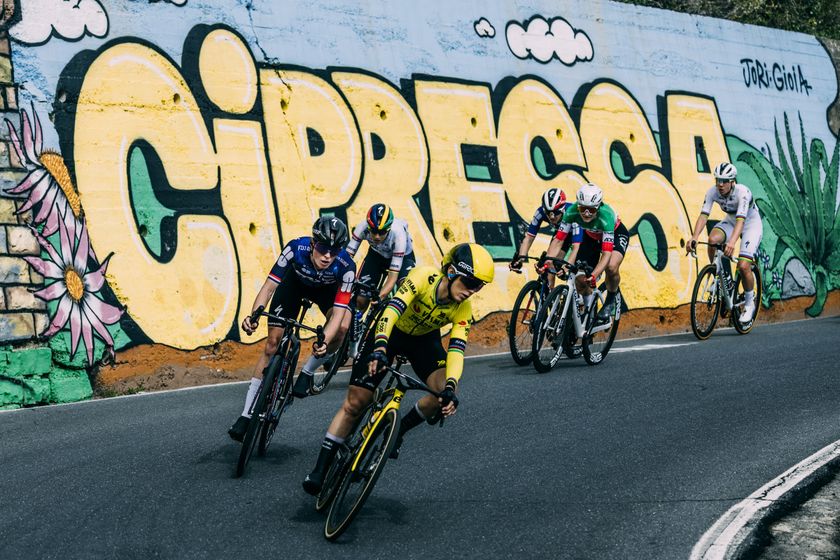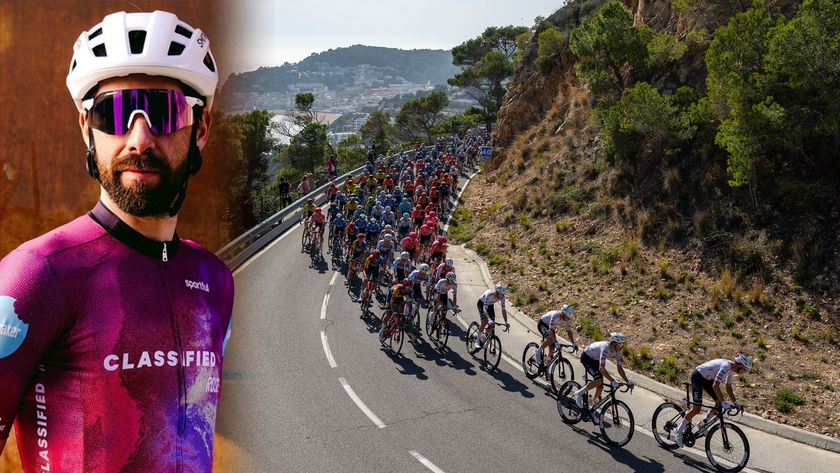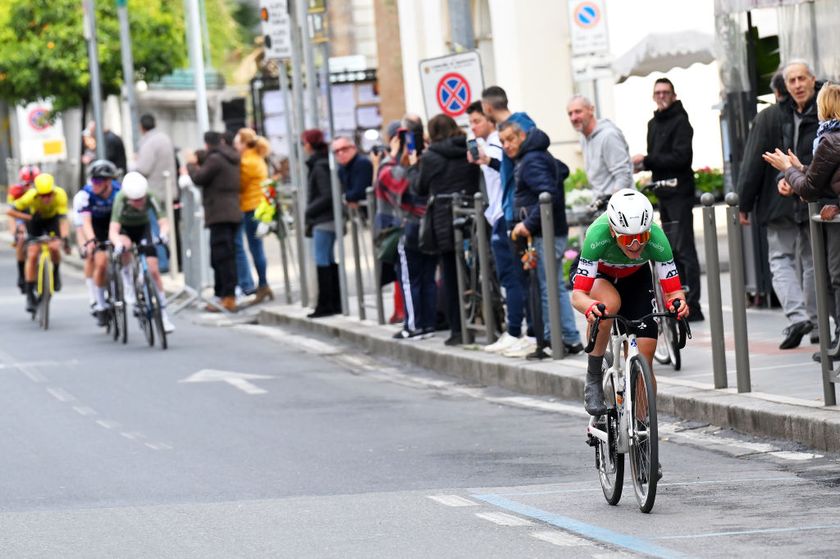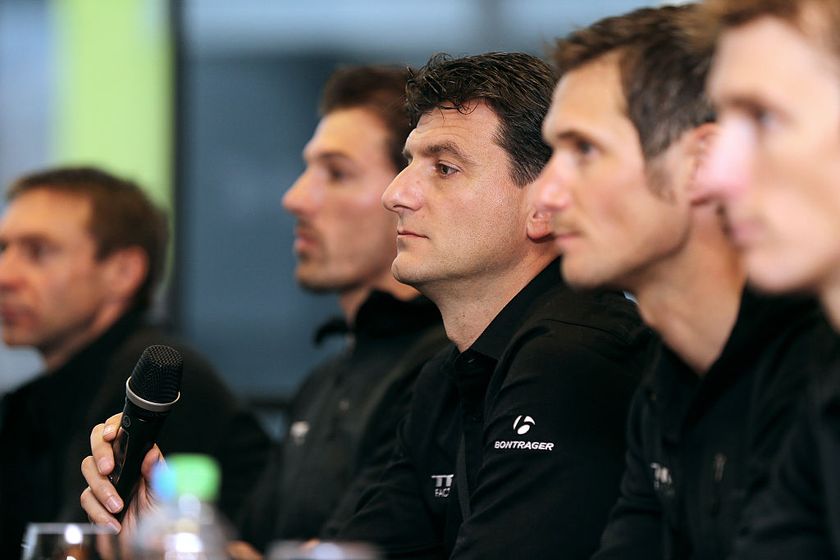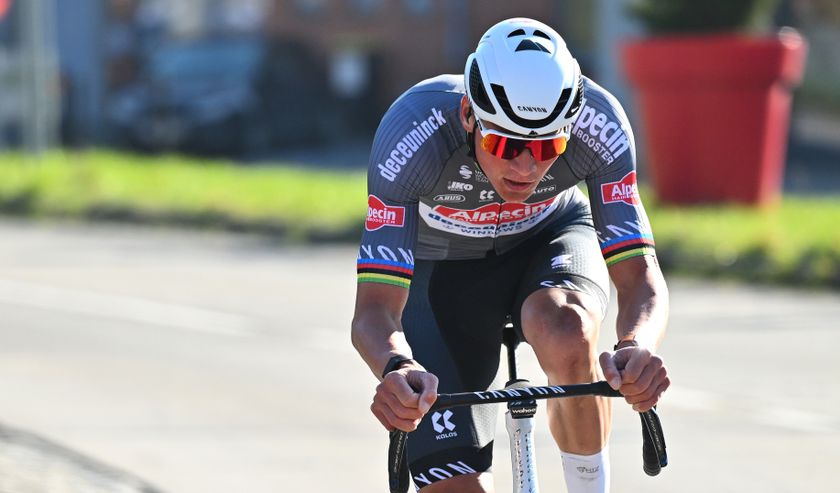Messick's masterplan for the Tour of California
Andrew Messick, president of Tour of California organiser AEG discusses the race's move to Spring for 2010



In May this year the Tour of California announced that it would move its current calendar spot in February to May for 2010. Running from May 16 to 23, the United States’ biggest stage race will now clash with the Giro d’Italia.
With a new route set to be announced in the coming days, Andrew Messick, president of race organiser AEG, spoke to Cyclingnews at the Interbike trade show in Las Vegas, Nevada, about why the race moved, the implications and the globalisation of cycling's calendar.
Cyclingnews: Andrew, we have to talk about date change from February to May. Can you explain why you’ve done this and how it came about?
The reality is that, historically, the period from Paris-Nice to the end of the Tour de France has been perceived as the main European racing season and we’ve been out of that. That’s something that we’re working our way through and we’re optimistic that we’re going to continue to get the kind of riders and the kind of teams that we want. We’re also hopeful that having an important race outside of Europe at that time will be good for us and the sport of cycling.
When you sat down and looked at the calendar and said ‘we’re going to move the date’ was the month of May always the optimum period for you?
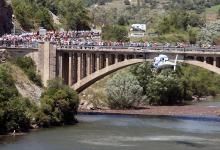
Andrew Messick: We looked at the old spot for the Tour of Georgia, the beginning of May and mid-to-late May. The April spot meant competing with the Classics. The kinds of rider we want to attract are guys that take those races seriously and we didn't want to compete with those races. Having to compete against the Giro is not a trivial thing. It's a great race and has a lot of history.
CN: But you do see it as competition?
Andrew Messick: We hope and expect that there are enough riders for both of us. We're going to be on Eurosport and so are they, so we'll both have television exposure and the same goes with television networks in the US. We don't think we're really competing, but there's clearly going to be some impact. Broadly speaking the Giro will have fewer Americans and our race will have fewer Italians. But we're optimistic that we'll have a field of riders that will be competitive as last year.
Get The Leadout Newsletter
The latest race content, interviews, features, reviews and expert buying guides, direct to your inbox!
CN: You mention television rights. How important is that that kind of exposure for the race?
Andrew Messick: I don't think we're trying to draw an audience away from anyone, but television rights do matter. The media rights drive value, just look at the Olympics or the Tour [de France]. That's how you broaden the value of your event to a bigger audience. We had two million people on the roads watching the race in 2009, more than ever before, but you can have many more eyeballs through television and the web if the platform is good enough.
CN: Is this the natural progression for cycling? Ten years ago a US race making such a bold move would never have happened. You wouldn't have had such a big event running alongside or against the Giro. Is this the globalisation of cycling?
Andrew Messick: I think part of cycling's great strength is that it possesses enormous history, but that needs to be worked through. We're respectful of the history and heritage, but at the same time we're mindful that the sport that has fans and athletes from every country. Historically, in the European calendar, ever single race of substance takes place in one of five western European countries. For cycling to be truly global it can't be that way.
There need to be important international races and there needs to be an important American race. Conceptually, everyone agrees with that. The question is how do you do it? The Tour down Under has a good position, but there isn't a slot for North America. Rightly or wrongly, for US fans the season ends with the Tour and we feel that we need to be part of the lead up. It doesn't make sense for us to be in August or September.
CN: But you take the risk of, lets say, a team like Saxo Bank wanting to build up for the Tour by doing the Giro, then a few teams follow suit and you have squads that aren't as strong as 2009. Therefore no Schlecks, Cancellara and so on…
Andrew Messick: We hope that doest happen, but it is a risk. Saxo Bank has had good experience at our race. They ride American bikes and we think, therefore, that they have other reasons to be in North America. A three week race in May isn't for everyone who is preparing for the Tour.
CN: It seemed to be the case this year. For example, Menchov, Sastre, Leipheimer, Armstrong and a few more…
Andrew Messick: That was exceptional, but I expect the American teams to field strong squads and that our sponsor Rabobank will do too. Historically they, along with Quickstep and Liquigas, have fielded strong teams. Vincezo Nibali had a great race with us. He didn't do the Giro and had a fantastic Tour de France.
CN: How much work had to be done with the International Cycling Union (UCI) to find the new date?
Andrew Messick: It was our good fortune that Pat McQuaid came to visit the race this year after four days of rain. He had an opportunity to talk to everyone, including the riders and teams, and I think he realised that California is a great state, but it really does rain a lot in February and that's not what we want to showcase. So we worked hard with the UCI to find a solution. [The Volta a] Catalunya wanted to move to March so it created space. With that we're also talking about becoming part of the ProTour in 2011, which will be another big step for us and will help the UCI globalise the sport.
CN: If the race hadn't moved would it have survived?
Andrew Messick: I'm glad I didn't have to find that out. I really don't know. Our owner and my bosses have pretty keen sense for long term value and their view is 'how can we grow the race when it's always raining?' It's a good question.
CN: It doesn't just come down to weather though, does it? It rains at the Classics. It rains in Belgium.Stage three of the 2009 Tour of California went from Davis to Santa Rosa.
Andrew Messick: It does, but in the eyes of the world you don't go to California in the winter to get rained on. So part of what we sell is California is sunshine and warm weather. The weather was really bad this year. We had three stages where it never stopped raining and was never above 40 degrees. The athletes don't have fun and we want the Boonens and the Schlecks of the peloton to say it's a great race.
CN: By taking a spot that's close to the Tour of Georgia, do you almost resign that race to the grave?
Andrew Messick: I think the future of Georgia has little to do with us and has more to do with the state of Georgia. It was a great race, great for cycling in the United States. It was a better showcase for domestic riders than ours is. We have a stronger international scene. We hope they come back though.
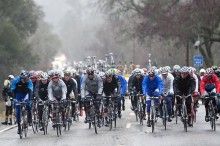
Daniel Benson was the Editor in Chief at Cyclingnews.com between 2008 and 2022. Based in the UK, he joined the Cyclingnews team in 2008 as the site's first UK-based Managing Editor. In that time, he reported on over a dozen editions of the Tour de France, several World Championships, the Tour Down Under, Spring Classics, and the London 2012 Olympic Games. With the help of the excellent editorial team, he ran the coverage on Cyclingnews and has interviewed leading figures in the sport including UCI Presidents and Tour de France winners.
